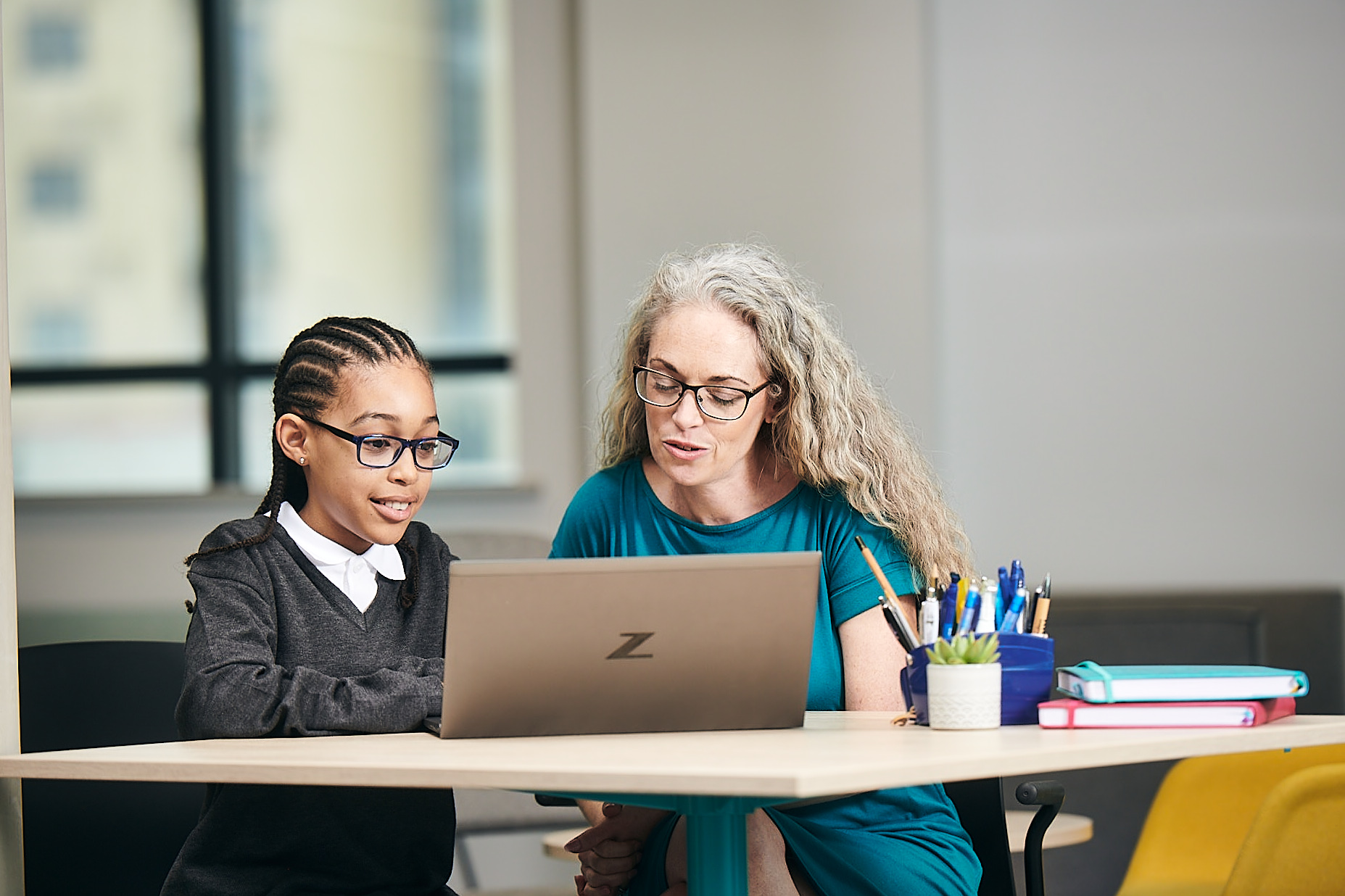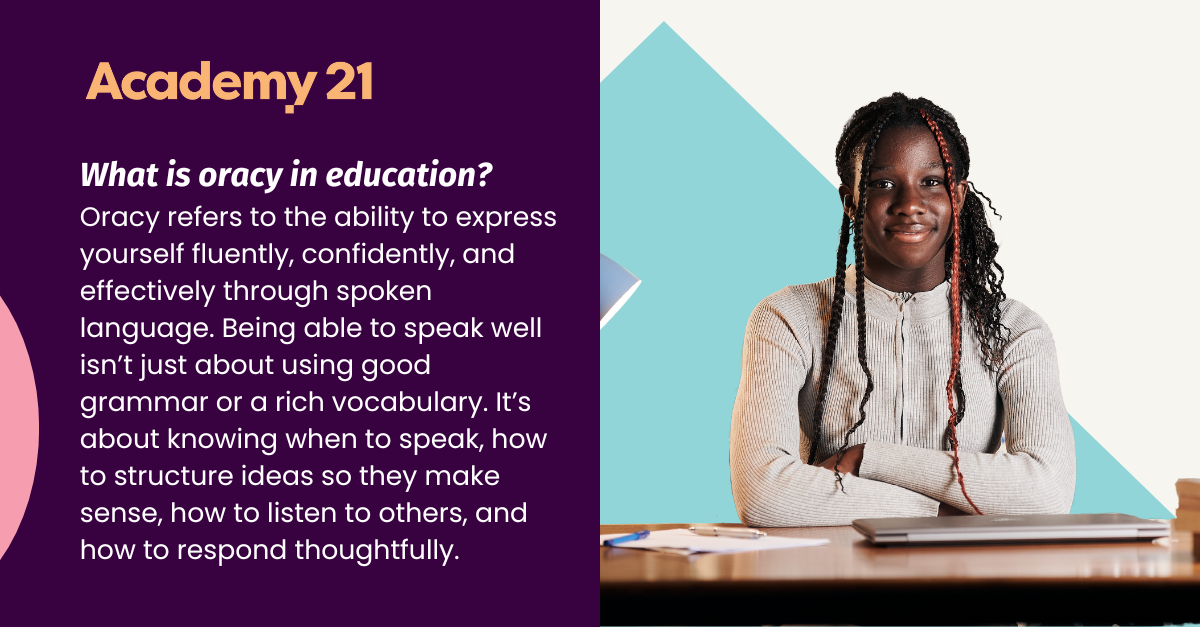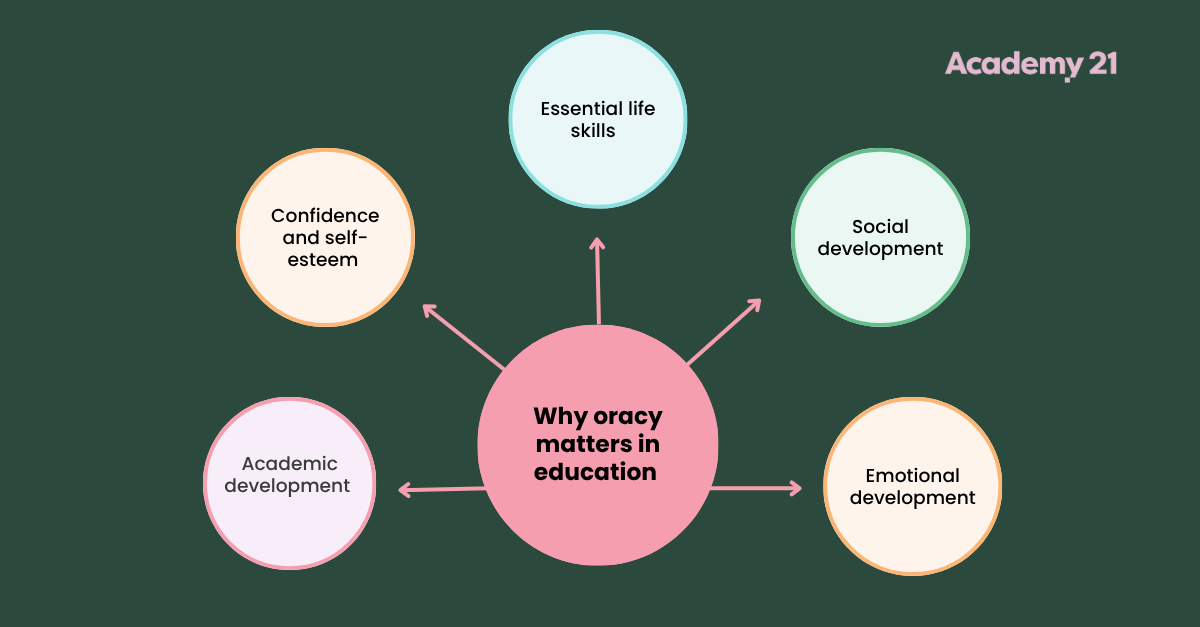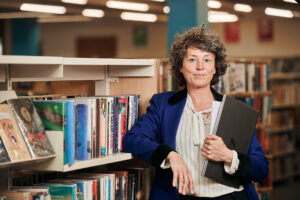What is oracy? A guide to oracy in education

When we think about the skills children need to succeed at school and in life, literacy and numeracy often come first to mind. Reading, writing, and numbers are the basics – the foundations on which much of a child’s education is built. But there is another skill that’s just as important, though it doesn’t always get the attention it deserves: oracy.
Oracy is the ability to express oneself clearly and confidently in spoken language, to listen actively, and to engage in meaningful conversation. It’s about more than just talking – it’s about thinking through ideas, sharing them, and understanding others. In other words, it’s the skill of using your voice to learn, connect, and succeed.
At Academy21, oracy isn’t treated as a separate “extra” skill. Instead, it’s woven throughout our teaching, helping students gain the confidence and communication skills they need to thrive in their education and society.
We explored this topic in our latest podcast episode, where Ray Boxall, Head of Senior School at Kings InterHigh (our sister school), shared his insights into fostering oracy and rich dialogue in online learning environments. To hear more about how we approach oracy, alongside other key characteristics of leading alternative provision, listen to the full episode on Spotify.
Click here to listen to the episode
What is oracy?
Oracy might sound like a simple concept, but it’s far more nuanced than we may assume. Being able to speak well isn’t just about using good grammar or a rich vocabulary. It’s about knowing when to speak, how to structure ideas so they make sense, how to listen to others, and how to respond thoughtfully.
Researchers in education have highlighted that children with strong oracy skills are better able to reason, solve problems, and engage with new ideas. They’re more confident in class discussions, more capable of asking questions that deepen their understanding, and better at collaborating with others. Oracy is the bridge between thinking and learning: it’s how students make their ideas visible, not just to teachers, but to themselves.

Why oracy matters in education
You might think that literacy alone is enough; that children can succeed simply by reading and writing well. In reality, oracy plays a distinct and complementary role, enhancing literacy and numeracy in ways that are essential for a well-rounded, holistic education.
1. Academic development
First, oracy supports academic development. Children who can articulate their thoughts clearly tend to understand and remember what they learn better. For example, a student explaining a science concept to a classmate is reinforcing their own understanding in a way that reading alone can’t achieve.
2. Confidence and self-esteem
Second, oracy builds confidence and self-esteem. Speaking in front of others can be daunting, particularly for younger learners or those who have struggled in traditional school environments due to bullying or heightened anxiety. When students are encouraged to share their ideas in a safe, supportive setting, they gain a sense of agency. They realise their voice matters, and that confidence spills over into other areas of learning and life.
3. Essential life skills
Third, oracy equips students with essential life skills. Whether it’s articulating ideas in a debate, negotiating with peers, or presenting work to an audience, strong communication skills are invaluable. Employers consistently rank communication as one of the most important soft skills for the workplace. Starting early with oracy means students are better prepared for the challenges and opportunities that lie ahead in the world of work.
4. Social and emotional development
Finally, oracy promotes social and emotional development. When children learn to listen, respond, and respect other viewpoints, they are practising empathy and collaboration. These are not just classroom skills; they’re life skills. For students at Academy21, who may be accessing alternative provision for various reasons, building these skills is particularly important. It gives them confidence in social situations and prepares them for interactions outside the classroom.

For Academy21 students, these benefits are especially significant. Many of our learners may have previously struggled in traditional school environments. Oracy gives them a way to rebuild confidence, express themselves, and succeed on their own terms.
How oracy can be developed in schools
The good news is that oracy can be developed, and it doesn’t require separate lessons. The most effective approaches embed it throughout the school day, following the framework that Ray Boxhall describes: talk, through talk, and about talk. This means students are not only encouraged to speak but also to reflect on their communication and understand how to structure their ideas clearly.
At Academy21, our approach is tailored to both primary and secondary students, with particular emphasis on younger learners, where foundational skills are built. In primary lessons, PSHE, wellbeing, and oracy content is woven into activities across the curriculum. Across subjects and key stages, teachers encourage students to plan their contributions, experiment with new vocabulary, and engage thoughtfully with their peers in a supportive, safe environment.
For example, rather than simply giving a maths solution, students might be asked to reflect on their method before explaining it to the class. In English or humanities, children discuss the motivations of characters or the causes of historical events, articulating their ideas while considering multiple perspectives. Each interaction is an opportunity to build confidence, clarity, and communication skills.
Teachers also focus on techniques like open-ended questioning, paired discussions, and group projects, all of which encourage students to articulate their ideas. They emphasise active listening and promote a vocabulary-rich environment, teaching students not just to speak, but to respond thoughtfully to their peers. Over time, children develop confidence, clarity, and the ability to collaborate effectively – skills that will benefit them well beyond the classroom.
Building skills that last a lifetime
Oracy is more than the ability to speak and listen; it is a key component of learning and personal development. Strong spoken communication enables students to think critically, engage confidently with others, and navigate both academic and social challenges.
At Academy21, oracy is embedded across all stages of education. But we also make sure that we create an environment where students feel confident, safe, and comfortable to develop their skills and knowledge beyond subject-specific content. For example, our provision is delivered in small classes of up to 15 students, and we use tech tools to make our online lessons interactive, with various options to participate and collaborate on each student’s own terms.
Contact our team below if you have any questions about our curriculum, how we teach, or would like to refer a student.



